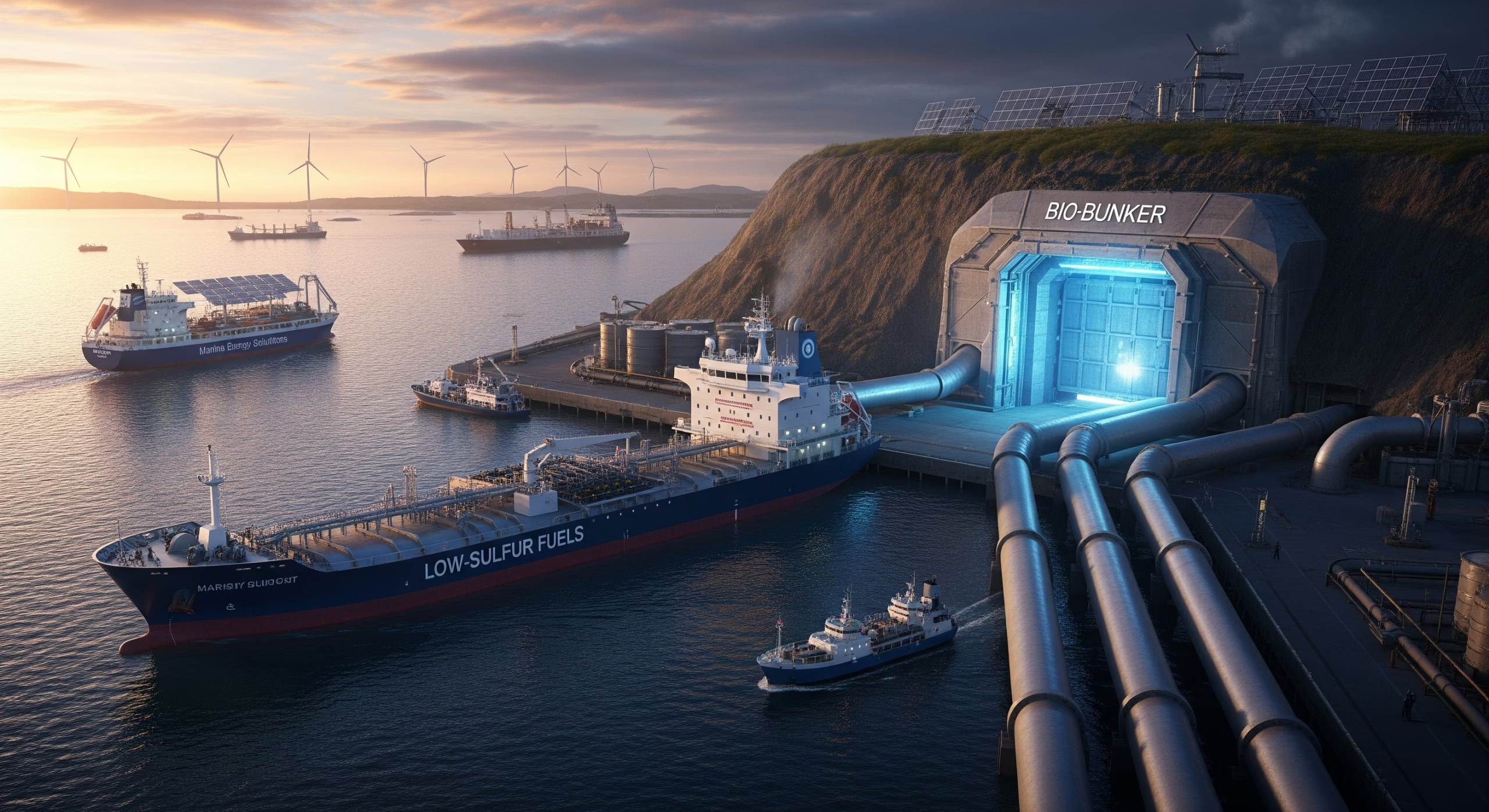Introduction
The global bunker fuel industry is undergoing one of its most significant transformations in decades. As environmental regulations tighten and shipping companies accelerate their decarbonization strategies, the demand for bio-bunker fuels and low-sulfur marine fuels is rising sharply. This trend is reshaping global fuel supply chains, opening new opportunities for bunker traders, and redefining how the maritime sector approaches sustainability.
Why Bio-Bunker and Low-Sulfur Fuels Are in Demand
Regulatory Pressure
- IMO 2020: Since the International Maritime Organization’s sulfur cap came into effect, vessels have been required to use fuel with a sulfur content of 0.5% or lower, pushing the industry away from high-sulfur fuel oil (HSFO). This change boosts the importance of adopting low-sulfur marine fuel options.
- FuelEU Maritime (2025): Europe’s new regulations are accelerating the adoption of biofuel blends to reduce greenhouse gas emissions.
- Regional ECAs (Emission Control Areas): Expansion of low-sulfur zones across Europe and North America is driving demand for Marine Gas Oil (MGO) and Very Low Sulfur Fuel Oil (VLSFO).
Sustainability Goals
Shipping companies are under increasing pressure from customers, investors, and regulators to demonstrate measurable progress towards net-zero emissions. Bio-bunkers—fuels blended with renewable feedstocks such as used cooking oil or agricultural waste—are becoming a practical short-term solution. Utilizing low-sulfur fuels is part of this sustainable approach.
Market Growth and Recent Trends
- In Singapore, the world’s largest bunkering hub, bio-bunker sales increased by 48% in the first 11 months of 2024, largely due to the upcoming FuelEU Maritime regulations.
- In Europe, shipping firms are increasingly shifting to MGO and bio-blends, anticipating stricter enforcement in Mediterranean ECAs.
- Global bunker traders report that demand for VLSFO remains robust, but the fastest-growing segment is bio-blended fuels, often sold as B24 or B30 (24% or 30% bio-content).
This growing demand signals a major market shift, where biofuels and low-sulfur marine fuel alternatives are no longer a niche product but a mainstream alternative.
Challenges Facing the Transition
While the rise of bio-bunkers and low-sulfur fuels presents clear opportunities, the industry also faces several obstacles:
- Price Volatility – Bio-bunkers can cost significantly more than traditional fuels, limiting adoption for smaller operators.
- Supply Chain Limitations – Availability of bio-feedstock is still limited, creating supply bottlenecks in some regions.
- Standardization Issues – Lack of global specifications for biofuel blends makes it difficult to guarantee consistent quality.
- Compatibility Concerns – Some shipowners remain cautious about using higher bio-content blends due to potential engine performance risks.
Opportunities for Bunker Traders
Despite these challenges, bio-bunker and low-sulfur fuels represent a high-growth market segment. Traders who adapt early stand to gain: those who innovate in supplying low-sulfur marine fuel could see significant benefits.
- Differentiation: Offering bio-bunker solutions helps traders stand out in a competitive market.
- Partnerships: Collaborating with renewable fuel producers can secure long-term supply contracts.
- Value-Added Services: Providing transparency in lifecycle emissions and sustainability reporting strengthens trust with shipowners.
At GF Bunker Trade, we recognize that the future of bunkering lies in balancing compliance, sustainability, and cost-efficiency. Our goal is to deliver reliable, forward-looking fuel solutions that help our clients navigate this energy transition.
Looking Ahead
The rise of bio-bunkers and low-sulfur fuels is not a passing trend—it is a structural shift. As regulations expand and supply chains mature, these fuels will play a critical role in bridging the gap between today’s energy needs and tomorrow’s decarbonized shipping industry. The use of low-sulfur marine fuel will be central to this transformation.
For shipowners and traders alike, adapting to this demand is no longer optional but essential.

